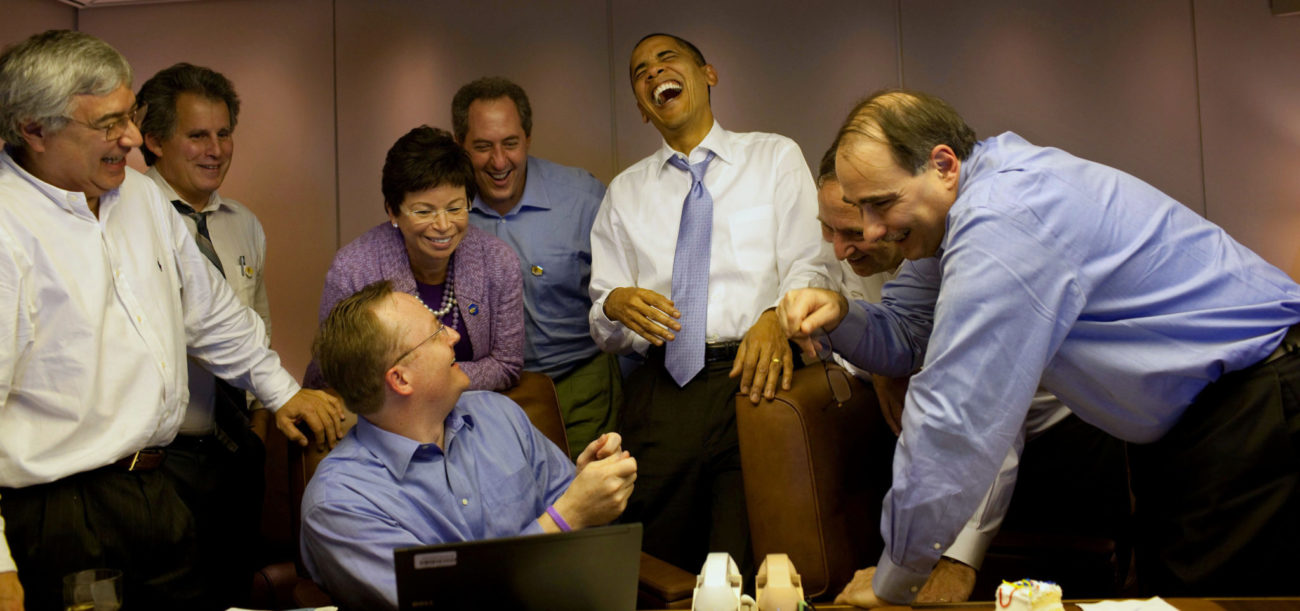Employee Engagement: Now A White House Priority
As American businesses start closing the books on the first quarter of 2014, we reflect on the continuing epidemic of poor employee engagement. Statistics from the last couple of years have shown that the vast majority of employees are either uninspired at work or actively disengaged. But for the first time ever, the White House announced that they will make engagement a priority for thousands of federal employees.
From small businesses all the way up to the highest levels of government, we are seeing greater awareness around this issue and the solution — asking the right questions and providing positive employee feedback. To help spread the word and work towards making a difference, we have compiled these five insightful posts from around the internet.
1. White House Makes Employee Engagement A Priority Goal
By Don Jacobson
One of the 15 goals announced by the White House for 2015, was to create a culture of excellence and engagement. Jacobson states that he cannot remember a high-level budget document so explicitly focusing on the causal link between employee motivation and the effectiveness of government programs. This effort hinges on listening to employee’s views about leaders and work experience, and creating a climate where those employees love coming to work every day.
[Tweet “For the first time ever, the White House announced that employee engagement is a priority goal.”]
2. Why Companies Fail To Engage Today’s Workforce: The Overwhelmed Employee
By Josh Bersin
After studying 2,500 organizations in 90 countries, Bersin is seeing a worldwide struggle to engage the 21st century workforce. The data is clear that engagement and retention are a huge problem, and that processes for managing performance are weak at best. By using the right tools, investing in leadership, and providing employees with a meaningful experience, businesses are beginning to create more passionate and engaged employees.
3. The Surprisingly Large Cost of Telling Small Lies
By Rebekah Campbell
What is the secret to success? A mix of hard work and good fortune? Campbell shares that “complete honesty is the access to ultimate power”. When we lie (even a little white one), we create a false reality and begin living inside it — the path to disengagement. Lying creates stress and saps our creative energy. But integrity and truthfulness build trust, the foundation for success.
4. ‘Powerful Questions’ Are Key To Becoming A Better Manager
By Jacquelyn Smith
The best managers never tell their employees what to do. Instead, they ask questions intended to illicit creative thought, problem solving, and growth. Powerful questions are open ended, and help employees separate facts from opinions and judgments. Creating that space allows employees to think for themselves and eventually reach their highest potential.
5. Easing the Global (and Costly) Problem of Workplace Stress
By Jennifer Robison
Costly problems like workplace stress and disengagement are not unique to the United States. Damian Byers, PhD, explains that employee engagement surveys can provide an early warning of stress or “psychological injury”. The cause is poor relationships with management, and poor management tools and policies. Managers must get feedback from employees and realize that they are providing leadership to a whole human being. But the buck stops at senior management. Their job is to set the context that helps everyone at the company to do their jobs in a healthy, productive manner.
Do you think employee engagement should be a White House priority? Is that a good use of your tax dollars? Leave us a comment below.




